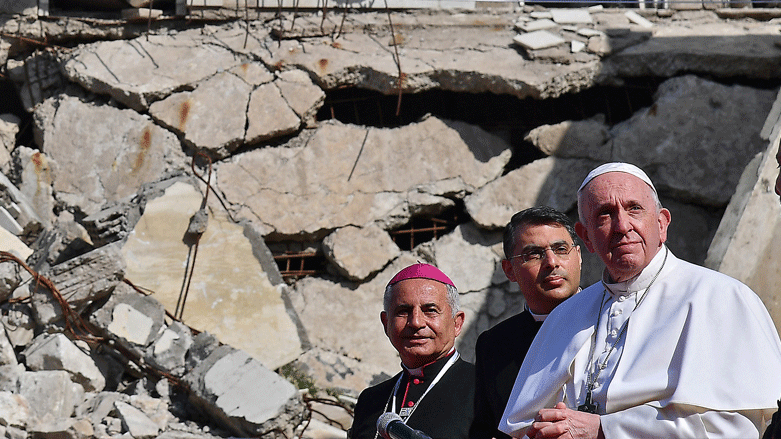During Iraq visit, Pope Francis donated $350,000 to the nation's poor: Cardinal

ERBIL (Kurdistan 24) – An Iraqi cardinal has revealed that Pope Francis, during his recent four-day visit to Iraq and the Kurdistan Region, left a $350,000 donation earmarked needy families across the embattled country.
During his historic trip in early March, the pontiff delivered a message of peace and brotherhood to the war-torn communities in Iraq. His visit was also widely perceived as a hopeful sign for the nation's decimated Christian population.
The sizeable gift was publicized on Wednesday by Cardinal Louis Raphael Sako, an Iraqi Patriarch of the Chaldean community in a letter of gratitude to Pope Francis for his historic visit, Agenzia Fides reported.
“$250,000 will be managed by Baghdad, while $50,000 have been sent to the Chaldean archdiocese of Mosul and another $50,000 to the Syrian Catholic archdiocese which includes Qaraqosh,” the high-level cleric said.
According to the letter, nearly 12,000 food packages, funded by the donation, have already been distributed to a variety of families across Iraq’s provinces, including Najaf, Basra, Kirkuk, and Zakho.
Christian communities in Iraq, most recently affected by the Islamic State's 2014 takeover of multiple Christian-majority towns, continue to dwindle.
In his visit to the Kurdistan Region on March 7, the pope told Kurdish leaders that “You have protected the Christians when ISIS attacked,” describing the autonomous region as a “home for displaced Christians.”
Pope Francis also held a Mass for roughly 10,000 attendees at a sports stadium in the Kurdistan Region's capital of Erbil.
Editing by John J. Catherine